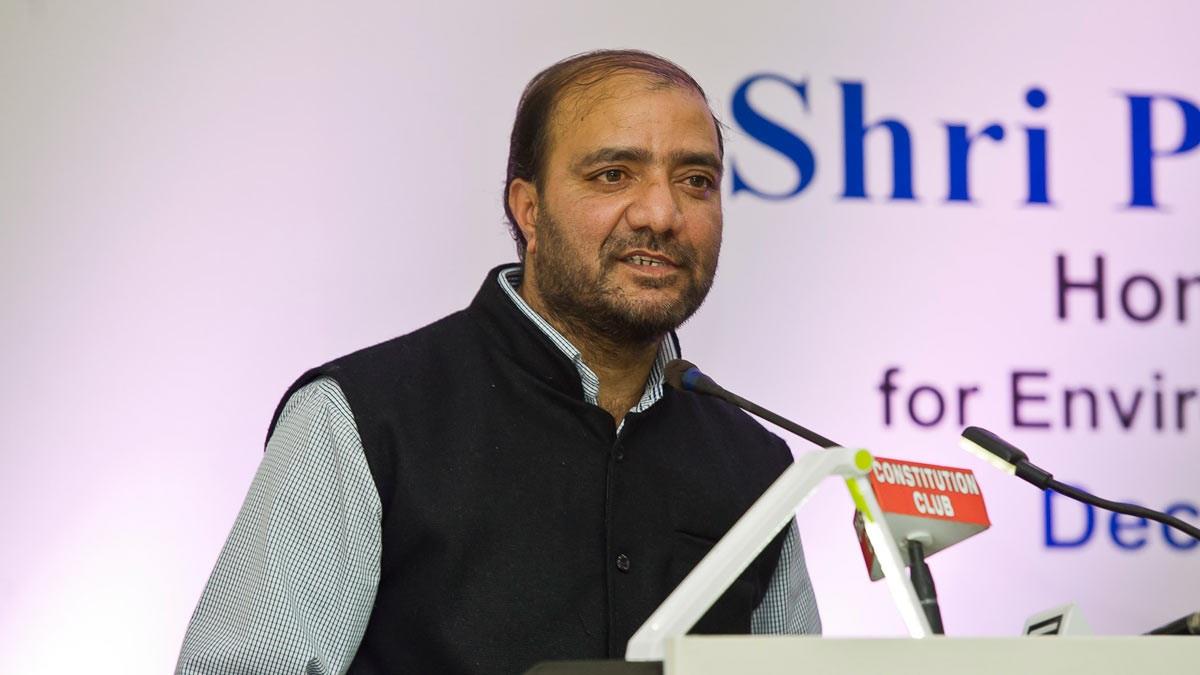
The Reporter Who Saw Kashmir Through The Light Of Truth
Tariq Ahmad Bhat
By Fiza Masoodi
Long before he became one of Kashmir's most respected journalists, Tariq Ahmad Bhat was a boy who studied under the yellow light of a lamppost in his birthplace Chotta Bazar. On winter evenings, when electricity flickered across Srinagar, neighbours would see him crouched beneath that streetlight, his books spread over his knees, lips moving as he memorized lessons. They still remember that glow.
“He would read for hours under that lamp,” said a neighbour who attended his funeral prayers on November 4.“People said he was too intense, that he had become mentally-strong from all that studying. He wanted something bigger from life.”
ADVERTISEMENTTariq eventually found it. He rose from the narrow lanes of downtown Srinagar to become the Kashmir Bureau Chief of The Week, one of India's leading magazines.
Over a three-decade career, he came to embody a rare blend of moral clarity, humour, and grace that colleagues say defined the best years of Kashmiri journalism.
He died on Tuesday morning after suffering a cardiac arrest at his home in Srinagar. He was 54, and is survived by wife and three kids.
His death has left the press fraternity in shock. His funeral drew droves of journalists, officials, and friends who remembered him as“fair, fearless, and humble.”
“He was a professional par excellence - sharp in his insight, fearless in his analysis, and unwavering in his integrity,” said former journalist Suhail Bukhari, who worked alongside Tariq for years.“In a profession as strained as journalism in Kashmir, his laughter brought rare light. His humour could lift even the heaviest newsroom days.”
Tariq Bhat's journey into journalism began in the 1990s, when Srinagar was caught in the throes of turmoil. After finishing his postgraduate degree in Mass Communication and Journalism at the University of Kashmir, where a classmate, Mussarat Zia, remembered his“striking resemblance to Abdullah Abdullah, the Afghan foreign minister”, Tariq worked briefly with The Indian Express before joining The Week in 2001.
His first assignments took him deep into the countryside, where he wrote about the forgotten corners of the valley.“He loved journalism deeply, not as a career but as a calling,” said one of his former colleagues.“He carried the despair of what journalism in Kashmir was becoming, silently, on his shoulders and in his heart.”
At The Week, his stories were known for precision and compassion. He wrote without embellishment, often letting his subjects speak for themselves. His award-winning report on Dardpora, a north Kashmir village of widows, earned the International Press Institute's India Award in 2014, shared with the magazine's chief photographer Arvind Jain. It remains one of the most haunting portraits of loss and survival from Kashmir's decades of discord.
“I leaned heavily on his razor-sharp insights, his unerring depth, and his quiet generosity,” said Yusuf Jameel, a veteran journalist and friend.“His voice will echo in every story we tell from the Valley.”
Though he was a senior-most journalist in Kashmir, Tariq preferred to describe himself as a“small-time reporter” or“lesser mortal.” He never sought attention, said PDP leader Naeem Akhtar, who often interacted with him in his capacity as the party's spokesperson.“He had an invincible curiosity to get to the bottom of an issue,” Akhtar said.“He gave soul to society and became a torchbearer for the budding journalists of our land.”
For many younger reporters, he was exactly that – a mentor who never stopped guiding.“I first met Tariq Sahib in 2007, as a fresher stepping into journalism,” one scribe said.“He often took us along on assignments, experiences that shaped our early careers. Whenever he spotted a good story, he'd call and say, 'Write this for a national or international audience.' That was his way of teaching us to think beyond borders.”
In his newsroom, he was known for his patience. Colleagues at The Week recall how he treated even the youngest trainee with kindness.“He was courteous to everyone,” one editor said.“He was the kind of senior who made space for others.”

Legal Disclaimer:
MENAFN provides the
information “as is” without warranty of any kind. We do not accept
any responsibility or liability for the accuracy, content, images,
videos, licenses, completeness, legality, or reliability of the information
contained in this article. If you have any complaints or copyright
issues related to this article, kindly contact the provider above.


















Comments
No comment